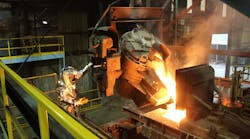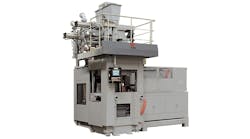The U.S. Department of Labor's Occupational Safety and Health Administration recently cited Grede Holdings LLC’s foundry in Browntown, WI, for three violations of the Occupational Safety and Health Act concerning workers’ exposure to crystalline silica dust. The federal agency has proposed penalties totaling $50,600 in its citation.
Exposure to crystalline airborne silica is considered a contributory cause of lung cancer, silicosis, chronic obstructive pulmonary disease (COPD), and kidney disease.
Grede’s Browntown foundry is a former Citation Corp. plant consolidated by Grede Holdings into the organization it established in 2010 by combining the former Citation and Grede Foundries organizations. It subsequently assembled an organization that now includes 14 gray and ductile iron foundries and three machining plants in the U.S. and Mexico.
Browntown manufactures castings weighing up to 1,900 lb. for agriculture and construction equipment, compressor parts, diesel engine parts, suspension components, HVAC, and other industrial and structural applications.
OSHA initiated the complaint inspection in November 2013. One of the violations is described as a repeat violation: A similar violation was cited at the same plant in 2012.
The other citations are described as serious violations, and concern improper ladder caging and failing to provide proper eye protection.
Repeat violations concern instances when an employer has been cited previously for the same or a similar violation. Serious violations concern instances wherein substantial probability that death or serious physical harm could result from a hazard about which the employer knew or should have known.
Grede was allowed 15 business days from receipt of its citations and penalties to comply, request an informal conference with the OSHA area director, or contest the citation to the independent Occupational Safety and Health Review Commission.
"Grede Wisconsin compromised the health of its workers by failing to monitor properly for inhalation of crystalline silica dust, a known hazard," stated OSHA area director Kim Stille. "Employers have a responsibility to monitor worker exposure to known hazards and to take precautions to limit exposure to potentially fatal elements."
OSHA has lately amplified its focus on the danger of crystalline silica dust exposure, including a proposed update to the silica standard it contends will prevent 1,600 new cases of silicosis and save nearly 700 lives per year. The new rule is still in the implementation phase.









